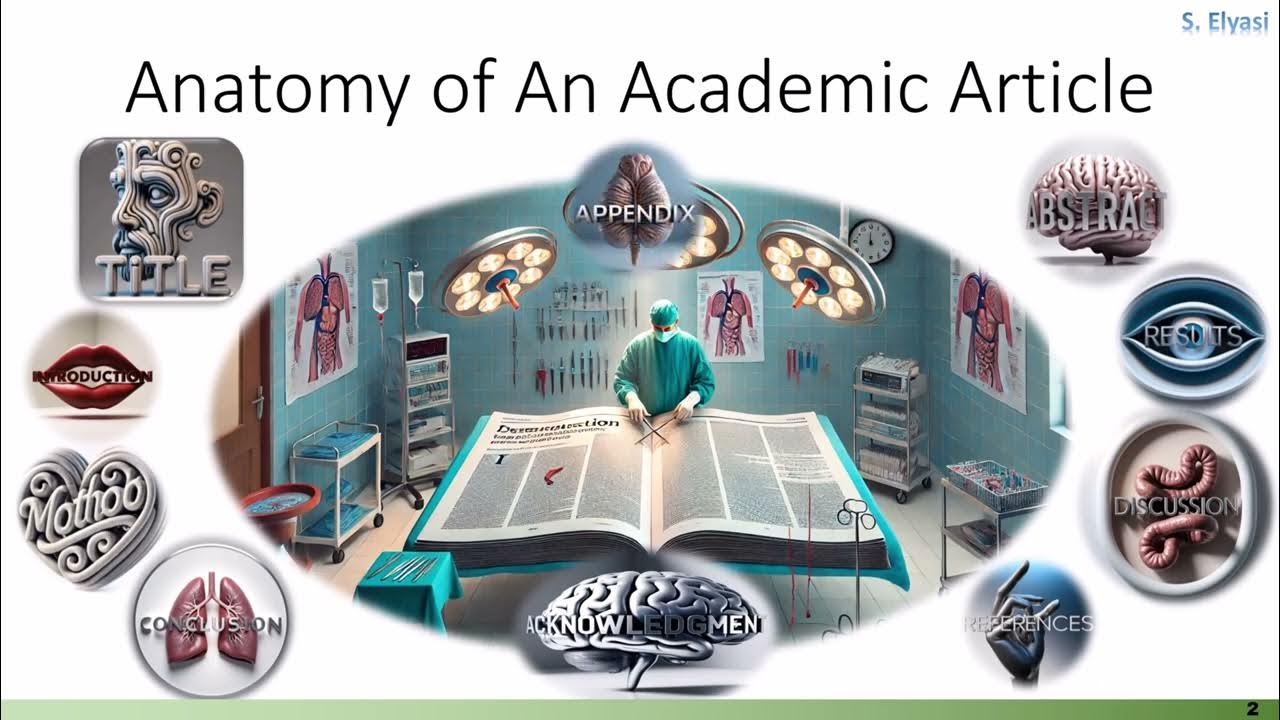Gini Cara Berpikir yang Benar
Summary
TLDRThe video script discusses the concept of scientific writing, emphasizing its universal application beyond academia. It explains that scientific writing is essentially argumentative, aiming to validate an idea or opinion through explanation. The script outlines the structure of such writing, including introduction, literature review, methodology, discussion, and conclusion. Using the example of a debate on civil servant registration, it illustrates how to construct an argument with supporting evidence and a clear thesis. The video also clarifies that while the logical flow in scientific writing is consistent, specific writing rules may vary by institution.
Takeaways
- 📚 Many students are confused about the purpose and structure of their theses, often just following templates without understanding their significance.
- 🔍 Scientific writing is fundamentally about presenting and defending an idea or argument with explanations to make it valid.
- ✍️ Argumentative writing is not exclusive to academia; it is a universal skill useful in everyday life for making informed decisions.
- 🧐 The introduction of a scientific paper should explain why the topic is being discussed, providing context and relevance to the reader.
- 📖 Literature review involves examining previous research to understand what has been done and how your work contributes or differs.
- 🔬 Methodology section outlines the specific steps and criteria used to conduct research and test hypotheses.
- 📝 The discussion section presents the results of the research, explaining how the findings support or refute the hypotheses.
- 🎯 The conclusion restates the main argument or hypothesis and summarizes the evidence supporting it.
- 💼 For non-academic contexts, such as suggesting a friend apply for a job, the same principles of presenting and defending an argument apply.
- 📊 Definitions and clarity are crucial in argumentative writing to ensure that terms and concepts are understood and not ambiguous.
Q & A
What is the main topic discussed in the video script?
-The main topic discussed in the video script is the concept of scientific writing and its application in various aspects of life, not just in academic settings.
What is the basic definition of scientific writing as explained in the script?
-According to the script, scientific writing is fundamentally an argumentative writing aimed at defending or proving a certain idea or opinion with explanations to make the idea or opinion valid.
Why is the ability to argue important in everyday life?
-The ability to argue is important in everyday life because it helps in finding the right ideas and making correct decisions, such as in social media debates or personal discussions.
What is the purpose of the 'Introduction' section in scientific writing?
-The purpose of the 'Introduction' section in scientific writing is to explain why the writer is bringing up a certain idea or topic, providing context and relevance to the issue being discussed.
What is the role of the 'Literature Review' section in a scientific paper?
-The 'Literature Review' section is where the writer examines and discusses relevant literature, research, and sources that have previously addressed the same or similar issues, establishing the context and relevance of the current research.
How does the script differentiate between the context of scientific writing and a casual chat argument?
-The script differentiates by explaining that while the structure of argumentation is the same, the context of scientific writing requires a more formal approach, including a literature review and a structured methodology, whereas a casual chat argument is more direct and immediate.
What is the significance of the 'Methodology' section in scientific research?
-The 'Methodology' section is significant as it explains how the research will be conducted to answer the research question and test the hypothesis, detailing the approach and ensuring clarity and reproducibility of the study.
What does the script suggest for the 'Discussion' section in scientific writing?
-The script suggests that the 'Discussion' section should provide a clear and precise explanation of the research findings, connecting them to the initial hypothesis and providing evidence to support the conclusions drawn.
What is the main goal of the 'Conclusion' section in both scientific writing and casual argumentative discussions?
-The main goal of the 'Conclusion' section is to restate the thesis or main argument and summarize the findings or evidence presented, confirming whether the initial hypothesis or argument is supported.
How does the script relate the concept of scientific writing to a casual chat about registering for a civil servant position (CPNS)?
-The script relates the concept by breaking down the chat into an argumentative discussion with a clear thesis (e.g., registering for CPNS is advisable), providing evidence and reasoning to support the argument, and concluding with a reaffirmation of the initial idea.
What advice does the script give regarding the adaptation of scientific writing structure to fit different contexts?
-The script advises that while the basic structure of scientific writing can be adapted to various contexts, it's important to adjust the level of formality, the depth of the literature review, and the presentation of evidence to suit the specific context and audience.
Outlines

This section is available to paid users only. Please upgrade to access this part.
Upgrade NowMindmap

This section is available to paid users only. Please upgrade to access this part.
Upgrade NowKeywords

This section is available to paid users only. Please upgrade to access this part.
Upgrade NowHighlights

This section is available to paid users only. Please upgrade to access this part.
Upgrade NowTranscripts

This section is available to paid users only. Please upgrade to access this part.
Upgrade Now5.0 / 5 (0 votes)





